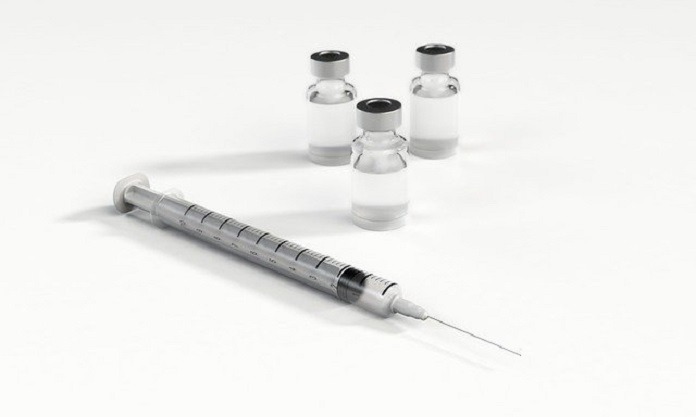There may soon be a vaccine available that blocks the addictive euphoric and harmful effects of opioid use. The vaccine is entering a phase I clinical trial, the first human-tested clinical trial of this type of vaccine.1
Developed by researchers at the University of Minnesota, the vaccine may help alleviate the opioid overdose crisis; in 2016, there were 2,861 opioid-related deaths in Canada2, and in the United States, almost 50,000 died from opioid-related overdoses in 2019.3 It is speculated that these large numbers are due to increased access to fentanyl and its derivatives.4
The new vaccine has been designed to reduce the euphoric effects normally induced by opioids. The vaccine causes the host’s body to launch an immune response, triggering the production of antibodies against an opioid called oxycodone.1 Once an antibody latches on to oxycodone, it cannot reach its receptors in the brain and the euphoric high is not achieved. Researchers hope this vaccine-induced immune response will reduce opioid abuse.
Lead investigator of the study, Sandra Comer, commented, “This medication approach is unique in that it can be used alone or in combination with other treatment medications and, importantly, may offer patients long-lasting protection against overdose if they relapse to opioid use”.1
Targeting an immune response has been explored in other notable studies to help alleviate the opioid crisis. One study tested a vaccine on mice and rats that reduced both the depressed heart rate – bradycardia – and respiratory rate induced by fentanyl and sufentanil.4 This vaccine when tested in rats also decreased the amount of self-consumed fentanyl, suggesting the addictiveness may be reduced.
A second study identified monoclonal antibodies – antibodies administered into the body – that targeted the anti-pain sensations experienced by heroin, oxycodone, and fentanyl in mice and rats.5 Treatment with these antibodies also decreased observed respiratory and heart rate depression from fentanyl. Both the aforementioned vaccine and monoclonal antibodies were highly specific to their respective receptors so as to not interfere with other opioid-related medications such as naloxone.
Clinical trial currently recruiting volunteers
The in-human vaccine trial is seeking male and female volunteers who are healthy heroin users aged 18-59. The study is being conducted at Columbia University in New York City and Clinilabs in Eatontown, New Jersey.6 Participants will be monitored for drug use and behaviours following treatment.
The proposal to have a vaccine for opioid use disorders holds the potential to save many lives. CEO of Clinilabs Gary Zammit noted, “Clinilabs is privileged to be working with the University of Minnesota Medical School and Columbia University on this ground-breaking trial. Exploring a preventative vaccine to treat opioid use disorder has the potential to be life-altering for patients and their families who are battling opioid abuse”.1
More information regarding participant inclusion criteria can be found at https://recruit.cumc.columbia.edu/clinical_trial/2168.
References
- Mendez, A. (2021). First-in-human clinical trial for a vaccine to treat opioid use disorders enrolled first patients. University of Minnesota Medical School. Accessed Sept. 7, 2021. Retrieved from https://www.eurekalert.org/news-releases/927548.
- National report: apparent opioid-related deaths in Canada (January 2016 to June 2017). (2017). Public Health Agency of Canada. Accessed on Sept. 12, 2021. Retrieved from https://www.canada.ca/en/public-health/services/publications/healthy-living/apparent-opioid-related-deaths-report-2016-2017-december.html.
- CDC/NCHS, National Vital Statistics System, Mortality. CDC WONDER, Atlanta, GA: US Department of Health and Human Services, CDC; 2019. https://wonder.cdc.gov.
- Robinson, C. et al. (2020). Therapeutic and Prophylactic Vaccines to Counteract Fentanyl Use Disorders and Toxicity. Journal of Medicinal Chemistry; 63(23): 14647-14667. Doi: 10.1021/acs.jmedchem.0c01042.
- Baehr, C.A. et al. (2020). Monoclonal antibodies counteract opioid-induced behavioural and toxic effects in mice and rats. The Journal of Pharmacology and Experimental Therapeutics. Doi: 10.1124/jpet.120.000124.
- Clinical Trials of Multivalent Opioid Vaccine Components. Columbia University Recruit Me. Accessed on Sept. 8 2021. Retrieved from https://recruit.cumc.columbia.edu/clinical_trial/2168.
- Image by Arek Socha from Pixabay



